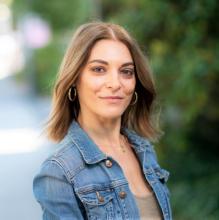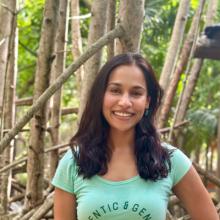Graham is an established photographer and researcher. His work draws on vulnerability, adaptation, and transformation theory to understanding how climate-related changes in high mountain glacial hydrology propagate through downstream socio-ecological systems. He aims to develop principles for responding to changes that are both socially and ecologically tenable.
Research Description
My doctoral research is focused on 1) characterizing how changes in the high mountain cryosphere––particularly climate-related changes in glacial hydrology––propagate through interlinked socio-ecological systems and 2) the development of principles for responding to cryospheric changes in ways that are both socially and ecologically tenable. To advance these objectives, I am combining insights from critical social science scholarship, research on coupled socio-ecological systems, and the perspectives of residents living in globally significant high mountain regions. My doctoral work contributes broadly to the advancement of integrative environmental change scholarship, while also providing actionable governance recommendations for supporting human well-being and ecological resilience in the context of a rapidly changing cryosphere. For more on Graham's background and research: grahammcdowellresearch.com.
What does being a Public Scholar mean to you?
Being a Public Scholar means taking concrete action to expand the reach, impact, and value of doctoral research. It means increased responsibility as well as new opportunities.
In what ways do you think the PhD experience can be re-imagined with the Public Scholars Initiative?
The formal support conferred through involvement with the Public Scholars Initiative allows students to feel more confident in exploring novel forms of collaboration, engagement, and dissemination. This expanded understanding of what is acceptable as scholarly effort helps to foster a more creative approach to the PhD experience, with implications for the impact of student's research within and beyond UBC.
How do you envision connecting your PhD work with broader career possibilities?
The opportunity to be supported in serious documentary film work alongside my core PhD research broadens my access to exciting career possibilities. Following my degree, I hope to work at the interface of cutting-edge environmental change research and creative public engagement and mobilization efforts. My PhD work and the Public Scholars Initiative are helping me build a bridge to this future.
How does your research engage with the larger community and social partners?
With support from the Public Scholars Initiative, I am producing a documentary film about the seldom-revealed lives of residents in remote high mountain regions, how they are adapting to the novel environmental dynamic presented by a changing climate, and the implications of their experiences for our responsibilities as global citizens. Producing this film, and working toward its effective dissemination, is leading me into exciting new relationship with partners across Canada.
Why did you decide to pursue a graduate degree?
Questions about how societies can successfully navigating the challenges and opportunities of global environmental change are open and consequential. In this context, pursing a PhD means that I am able to stay involved with and contribute to work that I believe is important and worthwhile. The degree also provides access to career opportunities that require advanced degrees.
Why did you choose to come to British Columbia and study at UBC?
The problem-driven, insight-oriented, and solution-focused mentality of my department as well as the amazing access to big mountains!
A key motivation behind the film I am producing is to significantly expand the contributions of my doctoral research for the public good".




